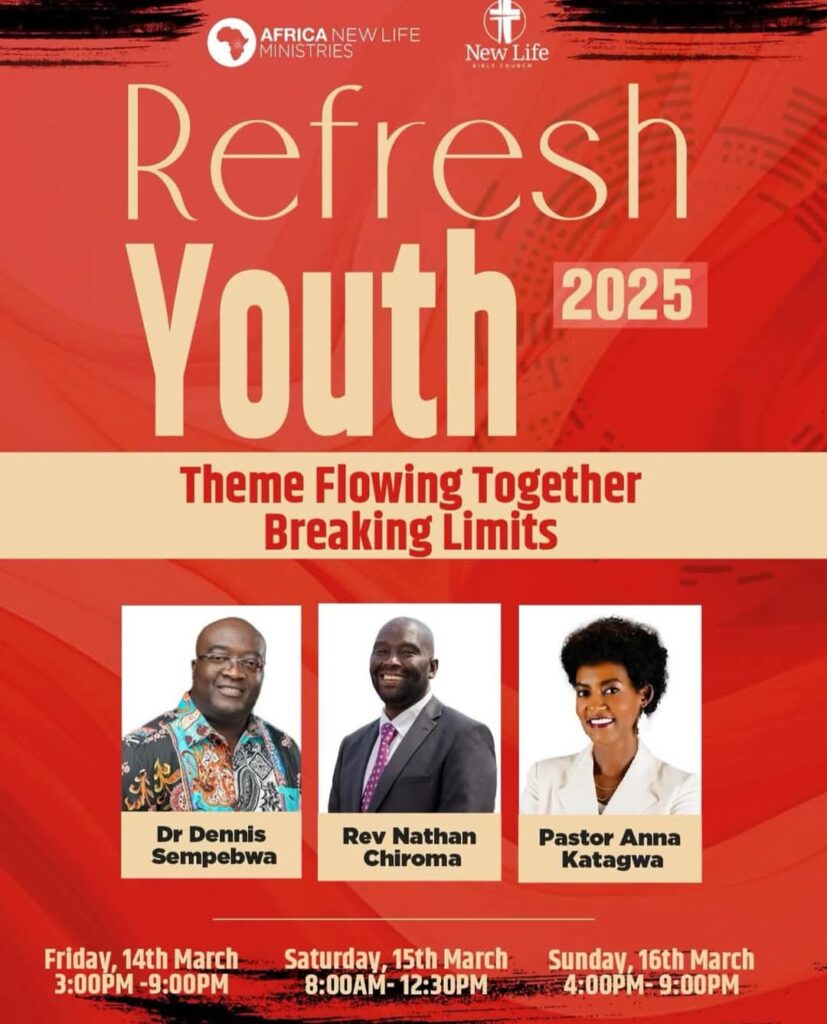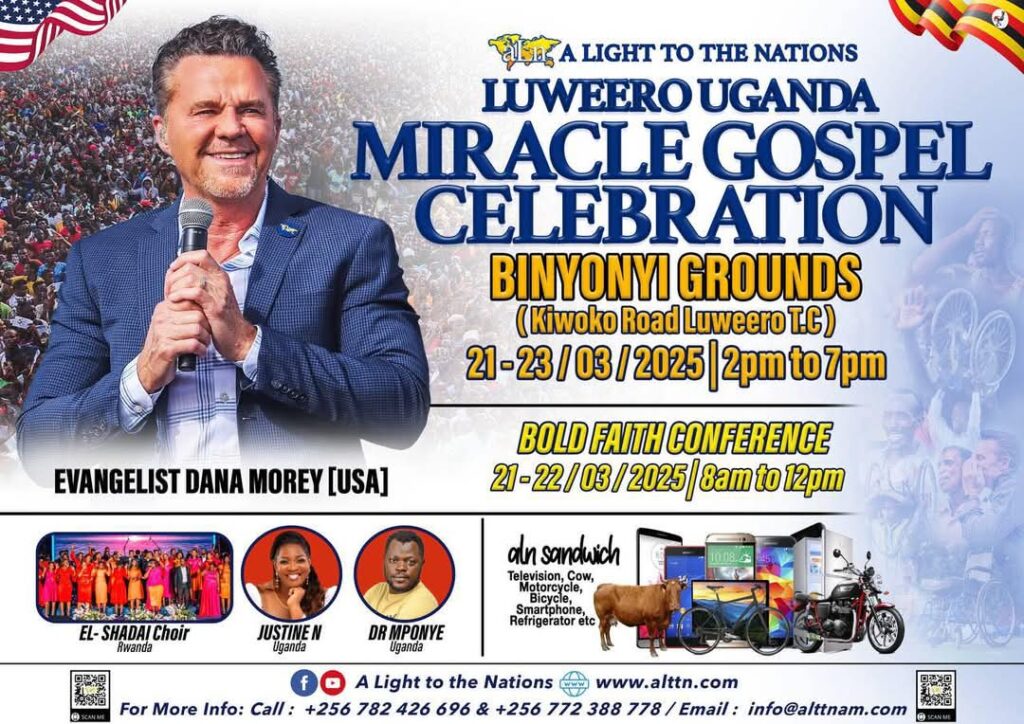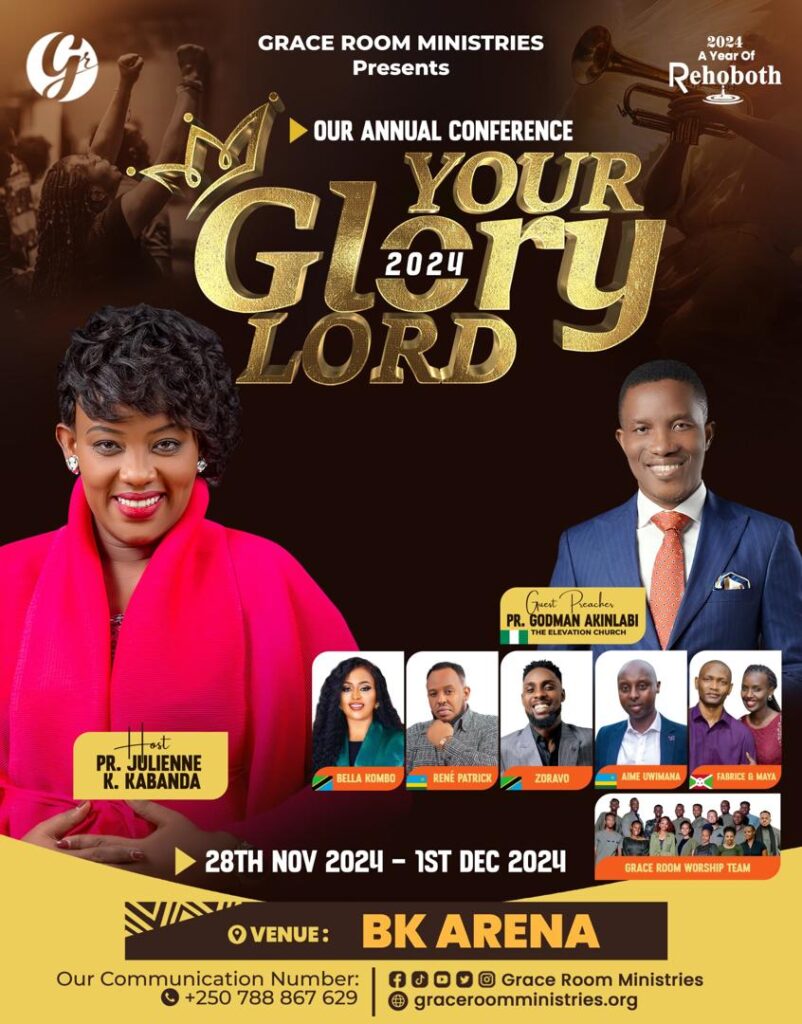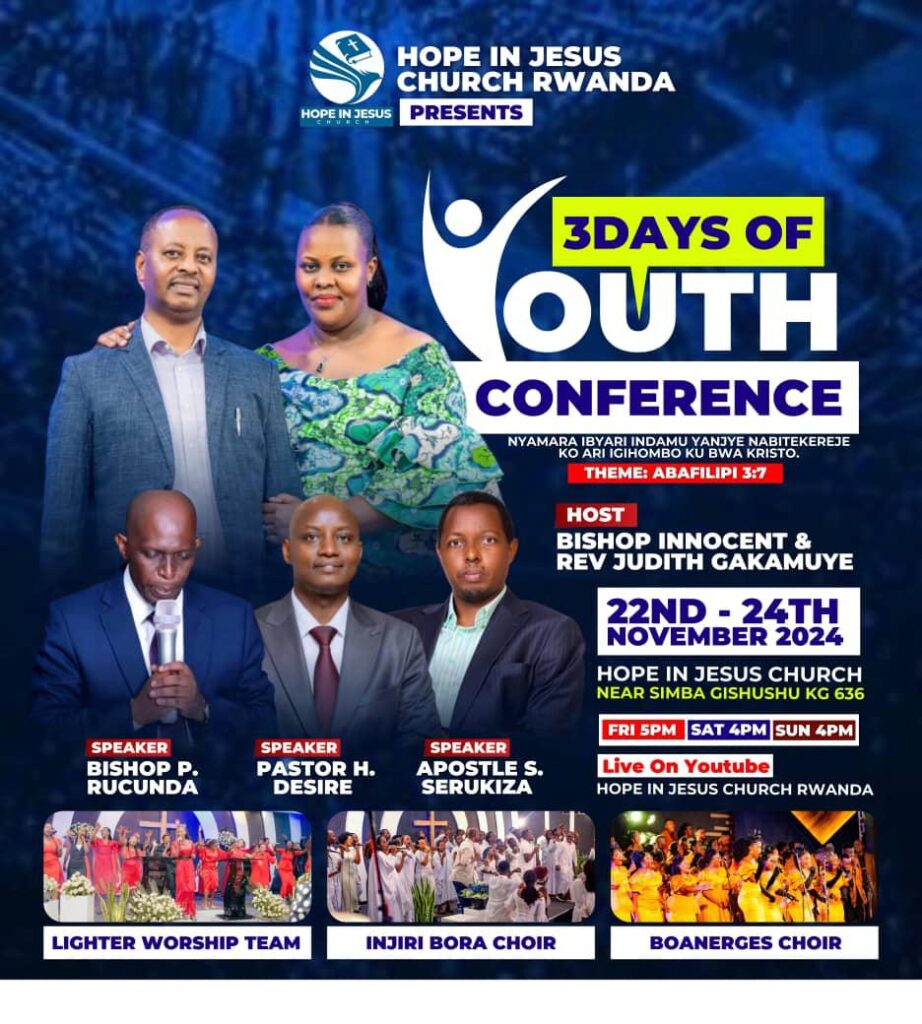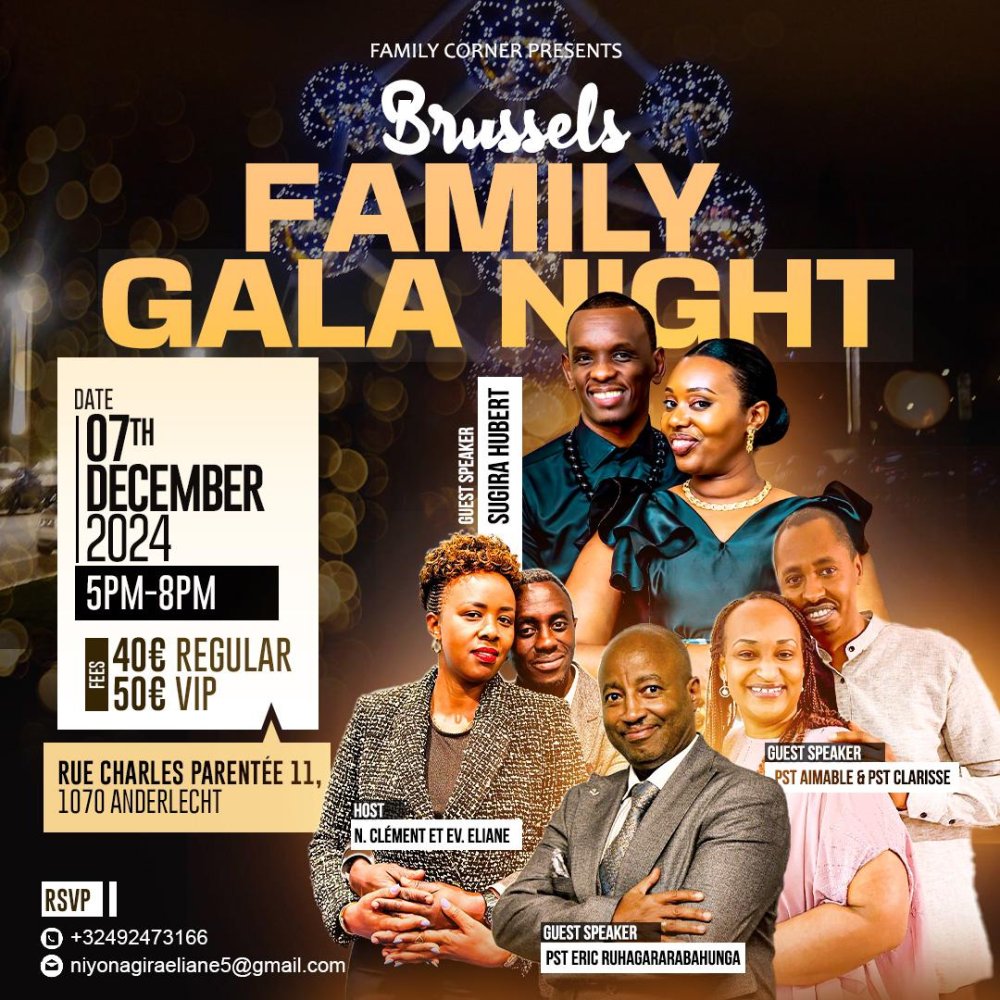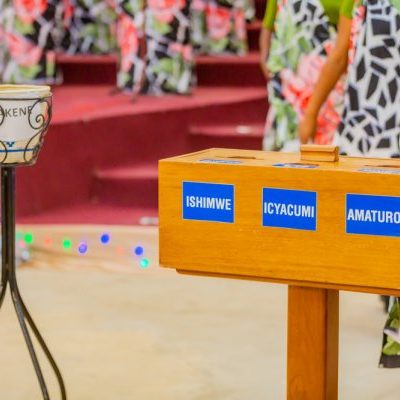Easter is one of the most important holidays of the Christian faith, as it celebrates the resurrection of Jesus three days after His death on the cross but we must Know that Easter for a Christian should not be a date but should be a reconciliation with the life of Christ.
Jesus’ resurrection serves as confirmation of all He claimed to be throughout His ministry on earth.
Though He was executed in the most violent and shameful way, and declared to be certainly dead, Jesus rose to life and defeated humanity’s opponent death.
The origins of the word “Easter” are uncertain, but for centuries this word has been used to refer to the springtime celebration of Jesus’ resurrection. The earliest celebrations among the first century church and apostles likely would have mirrored the Jewish Passover feast that Jesus shared with His disciples before His arrest the meal now known as the Last Supper (Matthew 26:17-30).
According to the Encyclopedia Britannica, Easter began to take on its own distinct traditions and cultural customs separate from Passover during the second century.

Rev .Dr .Aime Fulgence Barawigirira
WHAT IS GOOD FRIDAY AND WHY DID JESUS HAVE TO DIE?
Good Friday is when Christians remember Jesus’ crucifixion. Jesus’ death on the cross was as puzzling to the ancient world as it still is today. In the first century, non-Jewish people (called Gentiles) wondered why Christians would worship a God who was killed by His enemies. The Jews expected a Messiah to come and overthrow their enemies, namely the Roman Empire. If Jesus was God’s Anointed One, why would He come to such a tragic end? Why was Jesus crucified?
Because no other sacrifice was enough to restore humanity’s broken relationship with God, caused by sin and rebellion against God.
As Hebrews 10 points out, the law that the Jews had been following for centuries could not repair the brokenness of humanity.
The law is only a shadow of the good things that are coming not the realities themselves. For this reason it can never, by the same sacrifices repeated endlessly year after year, make perfect those who draw near to worship. Otherwise, would they not have stopped being offered? For the worshipers would have been cleansed once for all, and would no longer have felt guilty for their
sins. But those sacrifices are an annual reminder of sins. It is impossible for the blood of bulls and goats to take away sins (Hebrews 10:1-4, NIV).
The brokenness of humanity was, and still is, the greatest barrier to having a relationship with God. The Bible calls this broken nature “sin” and says that all people have sinned (Romans 3:23). Sin active rebellion or passive indifference toward God causes each human to be separated from God (Romans 6:23). But because Jesus offered Himself as a sacrifice being infinitely good, sinless and in right standing with God His sacrificial death was enough to restore humanity’s relationship with God.
Once you were alienated from God and were enemies in your minds because of your evil behavior. But now He has reconciled you by Christ’s physical body through death to present you holy in His sight, without blemish and free from accusation if you continue in your faith, established and firm, and do not move from the hope held out in the gospel. This is the gospel that you heard and that has been proclaimed to every creature under heaven, and of which I, Paul, have become a servant (Colossians 1:21-23, NIV).
This is why it had to be Jesus, the Son of God, who died for your brokenness and sin. And He willingly made this sacrifice because of His great love for you.
You see, at just the right time, when we were still powerless, Christ died for the ungodly. Very rarely will anyone die for a righteous person, though for a good person someone might possibly dare to die. But God demonstrates His own love for us in this: While we were still sinners, Christ died for us (Romans 5:6-8, NIV).
Jesus’ death created a bridge to God. It allows humans to find peace and forgiveness with God. This selfless act was performed on behalf of humankind all of whom were God’s enemies! This forgiveness is a gift given to those who accept it through faith.
EASTER’S CONNECTION TO PASSOVER AND ITS SIGNIFICANCE
At the first Passover, God instructed the Israelites, who were captive in Egypt at the time, to sacrifice a special lamb and apply its blood to the doorframes of their homes. God explains why in Exodus 12:12-13.
On that night I will pass through the land of Egypt and strike down every firstborn son and firstborn male animal in the land of Egypt.
I will execute judgment against all the gods of Egypt, for I am the LORD! But the blood on your doorposts will serve as a sign, marking the houses where you are staying. When I see the blood, I will pass over you.
This plague of death will not touch you when I strike the land of Egypt (NLT).
During this first Passover, the Israelites needed to believe God’s declaration and apply the blood to their doorframes. The plague of death passed over those who believed and acted in faith. In Luke 22:20, during Jesus’ Passover meal with His disciples, known as the Last Supper, Jesus describes Himself as the true Passover sacrifice.
After supper he took another cup of wine and said, “This cup is the new covenant between God and his people an agreement confirmed with my blood, which is poured out as a sacrifice for you (NLT).
Just as the Israelites had to believe in God’s promised provision for their sin, followers of Jesus in this new covenant must believe God’s declaration that the blood of Jesus covers all of their sins.
It is through trust in Jesus that you turn from your sins in repentance and, in faith, apply His blood to your life (1 John 1:7-9). Just like the plague of death in Exodus 12, spiritual death and judgment pass over those who place their trust in Jesus.
WHAT IS THE RESURRECTION ?
The fact that Jesus rose from the dead is at the very core of the gospel. Without it, the whole message falls apart. If Jesus had remained dead, what victory would there be to celebrate?
Jesus’ resurrection immediately legitimized His ministry. The Pharisees were religious teachers who often disagreed with Jesus and who became jealous of His popularity. By putting Him to death, they hoped to put an end to His influence. The Pharisees understood the impact that resurrection would have on Jesus’ message.
The next day, the one after Preparation Day, the chief priests and the Pharisees went to Pilate. “Sir,” they said, “we remember that while He was still alive that deceiver said, ‘After three days I will rise again.’ So give the order for the tomb to be made secure until the third day. Otherwise,
His disciples may come and steal the body and tell the people that he has been raised from the dead. This last deception will be worse than the first.”
“Take a guard,” Pilate answered. “Go, make the tomb as secure as you know how” (Matthew 27:62-65, NIV).
But just as Jesus foretold, He did in fact rise from the grave (Matthew 28:1-10). This wasn’t a metaphor. He physically rose from the dead! When Mary Magdalene, one of Jesus’ followers, first saw Him in the garden, she mistook Him for the gardener (John 20:15). Later, He appeared to other disciples (John 20:19-20, 26-27) and showed them the scars on His body from His crucifixion. Jesus ensured the disciples understood He wasn’t a ghost or apparition. He was the same Jesus who had spent the last three years with them, and He had conquered death.
When it comes to the Christian faith and the good news of the gospel, Jesus’ resurrection is non- negotiable.
But if it is preached that Christ has been raised from the dead, how can some of you say that there is no resurrection of the dead? If there is no resurrection of the dead, then not even Christ has been raised. And if Christ has not been raised, our preaching is useless and so is your faith. More than that, we are then found to be false witnesses about God, for we have testified about God that He raised Christ from the dead. But He did not raise Him if in fact the dead are not raised. For if the dead are not raised, then Christ has not been raised either. And if Christ has not been raised, your faith is futile; you are still in your sins. Then those also who have fallen asleep in Christ are lost. If only for this life we have hope in Christ, we are of all people most to be pitied. (1 Corinthians 15:12-19, NIV)
Paul makes it clear that you cannot deny that Jesus died and was raised from the dead and still claim to be one of His followers. If Jesus did not rise from the dead, then His gospel isn’t really good news.
WHY DOES EASTER MATTER TODAY?
Though much of what Christians celebrate at Easter has to do with the eternal hope of Jesus’ death and resurrection, Easter also offers hope to you today in whatever struggles you’re currently facing.
It can be challenging to reconcile why God’s perfect plan to restore humanity’s relationship with Him required such a violent, unjust execution of Jesus. Surely, if Jesus hadn’t risen from the grave, His death would have remained a dark moment in human history. But because He did rise from the dead and because He overcame and won the fight against sin, brokenness and death Christians can remember the darkness of the Cross with the hope and knowledge that the story doesn’t end there.
The light shines in the darkness, and the darkness has not overcome it (John 1:5, NIV).
That same hope applies to the struggles you face today.
When you put your faith in Jesus, you can trust that whatever darkness you may experience now will one day be flooded with light. Jesus, the Light of the World (John 8:12), overcame the darkest moment in history when He rose from the dead. Nothing is too dark or too far gone for God to restore.
Though You have made me see troubles, many and bitter, You will restore my life again; from the depths of the earth You will again bring me up. You will increase my honor and comfort me once more (Psalm 71:20-21, NIV).
For everyone born of God overcomes the world. This is the victory that has overcome the world, even our faith. Who is it that overcomes the world? Only the one who believes that Jesus is the Son of God (1 John 5:4-5, NIV).
WHY DOES IT MATTER THAT JESUS SUFFERED?
Jesus’ suffering is actually a reason for hope. Jesus was rejected by the people He showed love to. He was abandoned by His closest friends. He was given an unfair trial and accused of crimes He did not commit. He was tortured and executed by His enemies, with His own mother as a witness, having done nothing wrong Himself.
Jesus experienced intense suffering. He is God in the flesh, meaning God cannot be thought of as distant from suffering. Jesus chose to suffer so that He could one day bring an end to suffering and offer comfort and peace right now.
Therefore, it was necessary for Him to be made in every respect like us, His brothers and sisters, so that He could be our merciful and faithful High Priest before God. Then He could offer a
sacrifice that would take away the sins of the people. Since He Himself has gone through suffering and testing, He is able to help us when we are being tested (Hebrews 2:17-18, NLT).
So then, since we have a great High Priest who has entered heaven, Jesus the Son of God, let us hold firmly to what we believe. This High Priest of ours understands our weaknesses, for He faced all of the same testings we do, yet He did not sin. So let us come boldly to the throne of our gracious God. There we will receive His mercy, and we will find grace to help us when we need it most (Hebrews 4:14-16, NLT).
This present comfort offered freely through Jesus is the everyday hope of Easter. Christians celebrate Easter because Jesus’ death and resurrection demonstrate God’s commitment to drawing near to human suffering and restoring His people.
WHEN IS EASTER?
The date of Easter changes from year to year because it depends on the lunar calendar.
Easter always occurs on the first Sunday after the first full moon on or following the spring equinox. To make this calculation easier, the Christian church uses March 21 as the spring equinox date, even though, technically, the astronomical date can shift by a day or so. Using March 21 as a guide, Easter can fall on any Sunday between March 22 and April 25.
For those who follow Eastern Orthodox traditions and calendars, rather than Western, this moon-and-equinox calculation places Easter on a Sunday between April 4 and May 8.
LENT TRADITIONS AND EASTER CELEBRATIONS
Easter celebrations look different depending on where you are in the world. Many celebrations include some variation of an Easter Bunny that delivers eggs to children, both of which are traditional symbols of spring. Other countries fly kites to symbolize Jesus’ resurrection and ascension to heaven. Australia and the United Kingdom have Easter bonnet parades, where children decorate and showcase their own bonnet. Candy and sweets are popular gifts in Western cultures, which first began as a way to celebrate the end of Lent a historically observed season of anticipating Easter.
Lent is 40 days long (not including Sundays) and extends from Ash Wednesday to the Saturday before Easter. Traditionally, Lent is a time of preparation and an opportunity to go deeper with
God, often through personal reflection that prepares people’s hearts and minds for Good Friday and Easter.
PASSOVER:
Come to Me, all who labor and are heavy laden, and I will give you rest. Take My yoke upon you, and learn from Me, for I am gentle and lowly in heart, and you will find rest for your souls. For My yoke is easy, and My burden is light.” (Matthew 11:28-31, English Standard Version)
Coming to this gentle and lowly Jesus may look different for you than it does for other people. The key, though, is that you approach Him.
Lent provides a unique invitation to approach. During this time, you can allow the effects of what Jesus accomplished on the cross to wash over you and seep a little deeper into your soul. You are changed. You are being changed.
During these 40 days of Lent, slow down and focus as Jesus reminds you of how He has delivered you from sin, death and darkness by His death on the cross. God’s Word is full of pictures of God’s rescue and deliverance. You once were lost, now you’re found. You lived in darkness, now the light of the gospel floods your life. It’s a mysterious, glorious salvation that Jesus granted in laying down His life for yours.
For those who trust Christ, God has “rescued us from the dominion of darkness and brought us into the kingdom of the Son He loves, in whom we have redemption, the forgiveness of sins” (Colossians 1:13-14, New International Version). We have been rescued through blood and brought to life.
Through this devotional series, “Ashes to Resurrection,” we hope you will grasp these truths in ways that allow you to celebrate Jesus’ resurrection on Easter morning and His final defeat of sin and death with fresh hope.
Lent: How to Slow Down and Make More Room for Jesus in Your Life
The death and resurrection of Jesus is the big storyline of the Bible. It’s no surprise, then, that a majority of Christians celebrate it every year on Easter Sunday. But did you know some people start getting ready for Easter 40 days before it happens?
The six weeks leading up to Easter are known as Lent. Lent is believed to have started in the fourth century AD, when people who wanted to be baptized on Easter spent 40 days fasting and praying to prepare for their commitment.
Today, people who choose to practice Lent do so by giving up a kind of food, an activity or a bad habit. Other ways to observe Lent are attending special church services, committing to pray more or giving to others.
Why 40 Days?
In the Bible, Moses (Exodus 34:28), Elijah (1 Kings 19:8-9) and Jesus (Matthew 4:1-2) all went through intense fasting experiences for 40 days and 40 nights. By the time those experiences ended, they were ready for the next challenge they had to face. Adopting that pattern made sense to early Christians.
Is Lent Required to Be a Good Christian?
The short answer is no. Serving God isn’t about keeping religious customs, it’s about having a personal relationship with Him. If you’ve trusted Christ as your Savior, you can’t get “more saved” by practicing church traditions. But will your relationship with God deepen if you set aside time to reflect and focus on Him? Can a season of fasting help you prepare for the next step on your journey with God? The short answer is yes!
Making More Room for God in Your Life
One of God’s greatest promises explains what happens when you spend time with Him: “Draw near to God, and He will draw near to you” (James 4:8, English Standard Version).
Nearness means you’ll get to know God better and learn to recognize His voice. Jesus said He leads His sheep with His voice. “The sheep hear His voice, and He calls His own sheep by name and leads them out” (John 10:3, ESV).
With Christ in the lead, you’ll go the right direction and will make it to your destination. You won’t stumble around in a fog of confusion or wander aimlessly, not knowing where to go.
Staying close to Jesus also ensures you’ll have life “abundantly” (John 10:10). This doesn’t mean you won’t have challenges or hardships. But it does mean you’ll have peace, power and joy that can help you deal with any situation (Philippians 4:11-13).
WHAT DOES THE WORD PASSOVER MEAN, AND HOW DID IT BEGIN?
How and why did Jesus Christ and His disciples observe the ordinance of the Passover? Why is
Christ called “our Passover”?
It is clear from the Scriptures that Christ observed the Passover and commanded His disciples to follow His example. This ordinance has deep spiritual meaning for Christians, and Christ’s instructions to His followers about its proper observance are recorded in the inspired Word of God, the Bible.
The origin and meaning of the term Passover
The Passover derives its name from an event that occurred in the Old Testament, when God delivered the Israelites from the bondage of slavery in Egypt. The first mention of the Passover in the Bible is found in Exodus 12, when God instituted the Passover.
The Israelites were given specific instructions they were to meticulously follow before departing
Egypt for the Promised Land (Exodus 12:1-28). These verses describe the killing, roasting, eating and disposal of a lamb that was “without blemish.” This lamb without any physical defects is described as “the LORD’s Passover” (verse 11).
Notice how God’s instructions were clearly spelled out.
The lamb was selected on the 10th day of the first month (verse 3) and kept until the 14th day, when it was slain “at twilight” (shortly after sunset at the end of the 13th) (verse 6).
After the lamb was slain, its blood was placed on the “doorposts and on the lintel of the houses where they eat it” (verse 7).
“Now the blood shall be a sign for you on the houses where you are. And when I see the blood, I will pass over you; and the plague shall not be on you to destroy you when I strike the land of Egypt” (verse 13, emphasis added throughout).
“You shall keep it as a feast by an everlasting ordinance” (verse 14).
The Israelites were instructed not to leave their homes until the morning (verse 22).
Around midnight the LORD passed through the land to destroy the firstborn of the Egyptians, but when He observed the blood on the doorposts of the Israelite houses, “the LORD will pass over the door and not allow the destroyer to come into your houses to strike you” (verse 23).
“It is the Passover sacrifice of the LORD, who passed over the houses of the children of Israel in Egypt” (verse 27).
Josephus and the history of the Passover
Flavius Josephus, a well-known Jewish historian, also referred to the incident of God’s passing over the houses of the Israelites.
“Whence it is that we do still offer this sacrifice in like manner to this day, and call this festival Pascha, which signifies the feast of the Passover, because on that day God passed us over, and sent the plague upon the Egyptians; for the destruction of the first-born came upon the
Egyptians that night” (Antiquities of the Jews, Book 2, chap. 14, sec. 6).
Note that Passover derives its name from the night of the 14th of Abib, when God passed over the houses of the people of Israel and spared the firstborn from death because of the blood on the doorposts. The passing over of the Israelite households, thereby sparing their firstborn, is the reason the ceremony is called the Passover.
As the Israelite firstborns were saved by blood from certain death, so Christians are saved from eternal death through the shed blood of Christ our Savior. God’s instructions were clear as to when the Passover should be observed. In the second year after departing Egypt, the Israelites were commanded to observe it “at its appointed time . . . And they kept the Passover on the fourteenth day of the first month . . . according to all that the LORD commanded Moses, so the children of Israel did” (Numbers 9:1-5).
The Passover was “an everlasting ordinance” (Exodus 12:14), and it was only after its observance
that the Israelites were finally delivered from bondage and slavery to their cruel taskmasters. How do these events harmonize with the Passover described in the New Testament?
The Passover in the New Testament
Notice how the events in the Old Testament dovetail with those of the New Testament.
The passing over of the Israelite houses that had the blood of the unblemished lamb on the doorposts provides clear symbolism of the sacrifice of Jesus Christ in the New Testament. The only way our sins can be forgiven is through the shedding of blood, as is stated in Hebrews 9:22: “And without shedding of blood there is no remission” no forgiveness of sins.
Notice Ephesians 1:7: “In Him we have redemption through His blood, the forgiveness of sins, according to the riches of His grace.”
The only way to escape the death penalty brought about by sin is to repent of our sins and accept the sacrifice the shed blood of our Savior Jesus Christ.
Paul made it clear: “For indeed Christ, our Passover, was sacrificed for us” (1 Corinthians 5:7).
As the Israelite firstborns were saved by blood from certain death, so Christians are saved from eternal death through the shed blood of Christ our Savior.
Jesus and the Passover
Jesus Christ grew up in a family that observed the Passover every year “according to the custom,” and Luke tells about a specific incident that occurred when Jesus accompanied His parents to Jerusalem for Passover when He was 12 (Luke 2:41-43).
Early in His ministry Jesus came to John the Baptist at the Jordan River. When John saw Jesus walking toward him, he uttered these words: “Behold! The Lamb of God who takes away the sin of the world!” (John 1:29).
John understood that the lamb without blemish that was sacrificed in ancient Israel on the evening of the 14th of Abib (later called Nisan) was a type of Jesus Christ,
whose blood would be shed.
Just before His betrayal and death by crucifixion, Jesus Christ asked His disciples to make preparations for His final Passover. “Then came the Day of Unleavened Bread, when the Passover must be killed. And He sent Peter and John, saying, ‘Go and prepare the Passover for us, that we may eat’” (Luke 22:7-8).
Peter and John were led to a particular house with a large guest room where Jesus and His disciples would “eat the Passover” (verses 11-12). The disciples did as Jesus instructed, “and they prepared the Passover” (verse 13). This preparation took place late in the afternoon of the 13th of Nisan. Below is a summary of the events that took place during the evening prior to Christ’s death.
Christ sets the time for the Passover
According to God’s reckoning, days start and end at sundown. At the beginning of the 14th day of the first month (after sunset, which had ended the 13th), Jesus and His disciples gathered in the room prepared for the Passover. Notice the time setting of Jesus Christ’s final Passover:
“When evening had come, He sat down with the twelve” (Matthew 26:20).
“In the evening He came with the twelve” (Mark 14:17).
“When the hour had come, He sat down, and the twelve apostles with Him” (Luke 22:14).
Christ’s final Passover with His disciples occurred on the evening that began the 14th day of the first month of the Hebrew calendar.
Christ institutes the New Testament Passover symbols of the bread and the wine
Notice how Christ introduced His last Passover service. “Then He said to them, ‘With fervent desire I have desired to eat this Passover with you before I suffer’” (Luke 22:15). Then He gave instructions to His disciples regarding an aspect of the Passover they had not encountered before.
The Passover is an annual reminder of how we are delivered from the wages of sin, which results in eternal death (Romans 6:23).He introduced the symbol of the bread. “And He took bread, gave thanks and broke it, and gave it to them, saying, ‘This is My body which is given for you; do this in remembrance of Me’” (Luke 22:19).
He also introduced the symbol of the wine. “Then He took the cup [wine], and gave thanks, and gave it to them, saying, ‘Drink from it, all of you. For this is My blood of the new covenant, which is shed for many for the remission of sins’” (Matthew 26:27-28).
It is important to note that Jesus Christ did not repeal the observance of the Passover as instituted in the Old Testament, but introduced the symbols of the bread and the wine in place of the sacrificial lamb.
Passover and the foot-washing ceremony
Jesus introduced another ceremony that was not a part of the Old Testament Passover observance.
“Jesus . . . rose from supper and laid aside His garments, took a towel and girded Himself. After that, He poured water into a basin and began to wash the disciples’ feet, and to wipe them with the towel with which He was girded . . .
“So when He had washed their feet, taken His garments, and sat down again, He said to them, ‘Do you know what I have done to you? You call Me Teacher and Lord, and you say well, for so I am.
If I then, your Lord and Teacher, have washed your feet, you also ought to wash one another’s feet. For I have given you an example, that you should do as I have done to you.
Most assuredly, I say to you, a servant is not greater than his master; nor is he who is sent greater than he who sent him’” (John 13:3-5, 12-16).
Jesus demonstrated His attitude of godly humility and service toward others, and He instructed His disciples to follow His example: “You also ought to wash one another’s feet.” The foot- washing ceremony symbolizes Jesus’ heart of love, sacrifice and service to others.
“If you know these things, blessed are you if you do them” (verse 17). Christ’s words demonstrate how extremely important and significant it is for those who claim to be Christians to participate in the foot-washing ceremony.
The apostle Paul and the Passover observance
Did the early Church follow the example that Christ set and observe the New Testament Passover? Yes.
Notice what the apostle Paul stated: “For I received from the Lord that which I also delivered to you: that the Lord Jesus on the same night in which He was betrayed took bread; and when He had given thanks, He broke it and said, ‘Take, eat; this is My body which is broken for you; do this in remembrance of Me. In the same manner He also took the cup after supper, saying, ‘This cup is the new covenant in My blood.
“For as often as you eat this bread and drink this cup, you proclaim the Lord’s death till He comes” (1 Corinthians 11:23-26).
Partaking of the Passover is both a remembrance a memorial and a proclamation of Jesus’ death. The apostle Paul understood and taught this vitally important truth!
God’s master plan for mankind begins with the Passover. Other important festivals revealing God’s eternal plan for you and all humanity are listed in the Bible and provide vital information
about His future purpose for each of us.
The Passover and salvation
The Passover is an annual reminder of how we are delivered from the wages of sin, which results in eternal death (Romans 6:23).
Christ told His disciples: “Most assuredly, I say to you, unless you eat the flesh [symbolized by the bread] of the Son of Man and drink of His blood [symbolized by the wine], you have no life in you.” But someone who abides by the biblical instructions “has eternal life, and I will raise him up at the last day” (John 6:53-54).
The apostle Paul understood his weaknesses as he struggled against sin (Romans 7:24) and stated, “O wretched man that I am! Who will deliver me from this body of death? I thank God through Jesus Christ our Lord!” (Romans 7:24-25).
There is only one way we can be free of sin, and that is through accepting the sacrifice of Christ, who was willing to take on Himself the penalty of all of the sins of mankind—including yours (1 Peter 3:18; Matthew 26:28; Galatians 2:20).
The New Testament Passover service has a profoundly deep spiritual meaning and significance. It reminds us yearly that Jesus Christ both suffered and died to pay the penalty for our sins, and the sins of all mankind (John 3:16).
Etymology
pas ́ō – vẽr (חספּ, peṣaḥ, from pāṣaḥ, “to pass” or “spring over” or “to spare” (Exodus 12:13, Exodus 12:23, Exodus 12:17; compare Isaiah 31:5. Other conjectures connect the word with the “passing over” into a new year, with assyr pašâh̬ u, meaning “to placate,” with Hebrew pāṣah, meaning “to dance,” and even with the skipping motions of a young lamb; Aramaic חספּא, paṣḥā’, whence Greek Πάσχα, Páscha ; whence English “paschal.” In early Christian centuries folk-etymology connected páscha with Greek páschō, “to suffer”, and the word was taken to refer to Good Friday rather than the Passover):
- Pesach and Maccoth:
The Passover was the annual Hebrew festival on the evening of the 14th day of the month of ‘Ābhı̄ bh (Abib) or Niṣan, as it was called in later times. It was followed by, and closely connected with, a 7 days’ festival of maccōth, or unleavened bread, to which the name Passover was also applied by extension (Leviticus 23:5). Both were distinctly connected with the Exodus, which, according to tradition, they commemorate; the Passover being in imitation of the last meal in
Egypt, eaten in preparation for the journey, while Yahweh, passing over the houses of the Hebrews, was slaying the firstborn of Egypt (Exodus 12:12 f; Exodus 13:2 , Exodus 13:12 ff); the maccōth festival being in memory of the first days of the journey during which this bread of haste was eaten (Exodus 12:14-20 ).
Pesach Micrayim:
The ordinance of peṣaḥ micrayim , the last meal in Egypt, included the following provisions: (1) the taking of a lamb, or kid without blemish, for each household on the 10th of the month; (2) the killing of the lamb on the 14th at even; (3) the sprinkling of the blood on doorposts and lintels of the houses in which it was to be eaten; (4) the roasting of the lamb with fire, its head with its legs and inwards the lamb was not to be eaten raw nor sodden (bāshal) with water; (5) the eating of unleavened bread and bitter herbs; (6) eating in haste, with loins girded, shoes on the feet, and staff in hand; (7) and remaining in the house until the morning; (8) the burning of all that remained; the Passover could be eaten only during the night ( Exodus 12:1-23 ).
Pesah Doroth:
This service was to be observed as an ordinance forever (Exodus 12:14, Exodus 12:24), and the night was to be lel shimmūrı̄m, “a night of vigils,” or, at least, “to be much observed” of all the children of Israel throughout their generations (Exodus 12:42). The details, however, of the peṣaḥ dōrōth, or later observances of the Passover, seem to have differed slightly from those of the Egyptian Passover (Mishna, Peṣāḥı̄m, ix.5). Thus, it is probable that the victim could be taken from the flock or from the herd (Deuteronomy 16:2; compare Ezekiel 45:22). (3), (6) and (7) disappeared entirely, and judging from Deuteronomy 16:7, the prohibition against seething (Hebrew bāshal) was not understood to apply (unless, indeed, the omission of the expression with water” gives a more general sense to the Hebrew word bāshal , making it include roasting). New details were also added: for example, that the Passover could be sacrificed only at the central sanctuary (Deuteronomy 16:5); that no alien or uncircumcised person, or unclean person could partake thereof, and that one prevented by uncleanness or other cause from celebrating the Passover in season could do so a month later (Numbers 9:9 ff). The singing of the Hallel (Psalms 113 through 118), both while the Passover was being slaughtered and at the meal, and other details were no doubt added from time to time.
Maccoth:
Unleavened bread was eaten with the Passover meal, just as with all sacrificial meals of later times (Exodus 23:18; Exodus 34:25; Leviticus 7:12), independently perhaps of the fact that the Passover came in such close proximity with the Feast of Unleavened Bread (Exodus 12:8). Jewish tradition distinguishes, at any rate, between the first night and the rest of the festival in that the eating of maccōth is an obligation on the first night and optional during the rest of the week (Peṣāḥı̄ m 120a), although the eating of unleavened bread is commanded in general terms (Exodus 12:15, Exodus 12:18; Exodus 13:6, Exodus 13:7; Exodus 23:15; Exodus 34:18; Leviticus 23:6; Numbers 28:17). The eating of leavened bread is strictly prohibited, however, during the entire week under the penalty of kārēth, “excision” (Exodus 12:15, Exodus 12:19 f; Exodus 13:3; Deuteronomy 16:3), and this prohibition has been observed traditionally with great care. The 1st and 7th days are holy convocations, days on which no labor could be done except such as was necessary in the preparation of food. The festival of maccōth is reckoned as one of the three pilgrimage festivals, though strictly the pilgrimage was connected with the Passover portion and the first day of the festival.
During the entire week additional sacrifices were offered in the temple: an offering made by fire and a burnt offering, 2 young bullocks, 1 ram, 7 lambs of the first year without blemish, together with meal offerings and drink offerings and a goat for a sin offering.
The ‘Omer:
During the week of the maccōth festival comes the beginning of the barley harvest in Palestine (Menāḥōth 65b) which lasts from the end of March in the low Jordan valley to the beginning of May in the elevated portions. The time of the putting-in of the sickle to the standing grain (Deuteronomy 16:9) and of bringing the sheaf of the peace offering is spoken of as the morrow after the Sabbath (Leviticus 23:15), that is, according to the Jewish tradition, the day after the first day, or rest-day, of the Passover (Menā 65b; Meg Ta‛an. 1; Josephus, Ant. , III, x, 5), and according to Samaritan and Boethusian traditions and the modern Karites the Sunday after the Passover. At this time a wave offering is made of a sheaf, followed by an offering of a lamb with a meal and drink offering, and only thereafter might the new grain be eaten. From this day 7 weeks are counted to fix the date of Pentecost, the celebration connected with the wheat harvest. It is of course perfectly natural for an agricultural people to celebrate the turning-points of the agricultural year
in connection with their traditional festivals. Indeed, the Jewish liturgy of today retains in the Passover service the Prayer of Dew (ṭal) which grew up in Palestine on the basis of the needs of an agricultural people.
- Non-Traditional Theories:
Many writers, however, eager to explain the entire festival as originally an agricultural feast (presumably a Canaanitic one, though there is not a shred of evidence that the Canaanites had such a festival), have seized upon the ‛ōmer, or sheaf offering, as the basis of the ḥagh (festival), and have attempted to explain the maccōth as bread hastily baked in the busy harvest times, or as bread quickly baked from the freshly exempted first-fruits. Wherein these theories are superior to the traditional explanation so consistently adhered to throughout the Pentateuch it is difficult to see. In a similar vein, it has been attempted to connect the Passover with the sacrifice or redemption of the firstborn of man and beast (both institutions being traditionally traced to the judgment on the firstborn of Egypt, as in Exodus 13:11-13; Exodus 22:29, Exodus 22:30; Exodus 23:19; Exodus 34:19, Exodus 34:20), so as to characterize the Passover as a festival of pastoral origin. Excepting for the multiplication of highly ingenious guesses, very little that is positive has been added to our knowledge of the Passover by this theory.
The Higher Criticism:
The Pentateuch speaks of the Passover in many contexts and naturally with constantly varying emphasis. Thus the story of the Exodus it is natural to expect fewer ritual details than in a manual of temple services; again, according to the view here taken, we must distinguish between the peṣaḥ micrayim and the peṣaḥ dōrōth. Nevertheless, great stress is laid on the variations in the several accounts, by certain groups of critics, on the basis of which they seek to support their several theories of the composition of the Pentateuch or Hexateuch. Without entering into this controversy, it will be sufficient here to enumerate and classify all the discrepancies said to exist in the several Passover passages, together with such explanations as have been suggested. These discrepancies, so called, are of three kinds: (1) mere omissions, (2) differences of emphasis, and (3) conflicting statements. The letters, J, E, D, P and H will here be used to designate passages assigned to the various sources by the higher criticism of today merely for the sake of comparison. (1) There is nothing remarkable about the omission of the daily sacrifices from all passages except Leviticus 23:8 (H) and Numbers 28:19 (P), nor in the omission of a specific reference to the holy convocation
On the first day in the contexts of Deuteronomy 16:8 and Exodus 13:6, nor even in the omission of reference to a central sanctuary in passages other than Dt 16. Neither can any significance be attached to the fact that the precise day is not specified in Ex 23 (E) where the appointed day is spoken of, and in Leviticus 23:15 (H) where the date can be figured out from the date of Pentecost there given. (2) As to emphasis, it is said that the socalled Elohist Covenant (E) (Ex 23) has no reference to the Passover, as it speaks only of maccōth in Exodus 23:15, in which this festival is spoken of together with the other reghālı̄ m or pilgrimage festivals. The so-called Jehovistic source (Jahwist) (Exodus 34:18-21, Exodus 34:25) is said to subordinate the Passover to maccōth , the great feast of the Jehovistic history (JE) (Exodus 12:21-27, Exodus 12:29-36, Exodus 12:38, Exodus 12:39; Exodus 13:3-16); in Dt (D) the Passover is said to predominate over maccōth, while in Lev (P and H) it is said to be of first importance. JE and P emphasize the historical importance of the day. Whether these differences in emphasis mean much more than that the relative amount of attention paid to the paschal sacrifice, as compared with maccōth, depends on the context, is of course the fundamental question of the higher criticism; it is not answered by pointing out that the differences of emphasis exist. (3) Of the actual conflicts, we have already seen that the use of the words “flock” and “herd” in Dt and Hebrew bāshal are open to explanation, and also that the use of the maccōth at the original Passover is not inconsistent with the historical reason for the feast of maccoth it is not necessary to suppose that maccōth were invented through the necessity of the Hebrews on their journey. There is, however, one apparent discrepancy in the Biblical narrative that seems to weaken rather than help the position of those critics who would ascribe very late dates to the passages which we have cited:
Why does Ezekiel’s ideal scheme provide sacrifices for the Passover different from those prescribed in the so-called P ascribed to the same period (Ezekiel 45:21)?
- Historical Celebrations: Old Testament Times:
The children of Israel began the keeping of the Passover in its due season according to all its ordinances in the wilderness of Sinai (Numbers 9:5). In the very beginning of their national life in Palestine we find them celebrating the Passover under the leadership of Joshua in the plains of Jericho (Joshua 5:10). History records but few later celebrations in Palestine, but there are enough intimations to indicate that it was frequently if not regularly observed. Thus Solomon offered sacrifices three times a year upon the altar which he had built to Yahweh, at the appointed seasons,
including the Feast of Unleavened Bread (1Kings 9:25 = 2Chronicles 8:13). The later prophets speak of appointed seasons for pilgrimages and sacrifices (compare Isaiah 1:12-14), and occasionally perhaps refer to a Passover celebration (compare Isaiah 30:29, bearing in mind that the Passover is the only night-feast of which we have any record). In Hezekiah’s time the Passover had fallen into such a state of desuetude that neither the priests nor the people were prepared for the king’s urgent appeal to observe it.
Nevertheless, he was able to bring together a large concourse in Jerusalem during the 2nd month and institute a more joyful observance than any other recorded since the days of Solomon. In the 18th year of King Josiah, however, there was celebrated the most memorable Passover, presumably in the matter of conformity to rule, since the days of the Judges (2Kings 23:21; 2Chronicles 35:1 ff). The continued observance of the feast to the days of the exile is attested by Ezekiel’s interest in it (Ezekiel 45:18). In post-exilic times it was probably observed more scrupulously than ever before (Ezra 6:19 ff).
- Historical Celebrations: New Testament Times:
Further evidence, if any were needed, of the importance of the Passover in the life of the Jews of the second temple is found in the Talmud, which devotes to this subject an entire tractate, Peṣāḥı̄ m on which we have both Babylonian and Palestine gemārā’. These are devoted to the sacrificial side and to the minutiae of searching out and destroying leaven, what constitutes leaven, and similar questions, instruction in which the children of Israel sought for 30 days before the Passover. Josephus speaks of the festival often (Ant., II, xiv, 6; III, x, 5; IX, iv, 8; XIV, ii, 2; XVII, ix, 3; BJ, II, i, 3; V, iii, 1; VI, ix, 3). Besides repeating the details already explained in the Bible, he tells of the innumerable multitudes that came for the Passover to Jerusalem out of the country and even from beyond its limits. He estimates that in one year in the days of Cestius, 256, 500 lambs were slaughtered and that at least 10 men were counted to each. (This estimate of course includes the regular population of Jerusalem. But even then it is doubtless exaggerated.) The New Testament bears testimony, likewise, to the coming of great multitudes to Jerusalem (John 11:55; compare also John 2:13; John 6:4). At this great festival even the Roman officers released prisoners in recognition of the people’s celebration. Travel and other ordinary pursuits were no doubt suspended (Compare Acts 12:3; Acts 20:6). Naturally the details were impressed on the minds of the people and lent themselves to symbolic and homiletic purposes (compare 1 Corinthians 5:7; John 19:34-36, where the paschal lamb is made to typify Jesus; and Hebrews 11:28). The best-
known instance of such symbolic use is the institution of the Eucharist on the basis of the paschal meal. Some doubt exists as to Whether the Last Supper was the paschal meal or not. According to the Synoptic Gospels, it was (Luke 22:7; Matthew 26:17; Mark 14:12); while according to John, the Passover was to be eaten some time following the Last Supper (John 18:28). Various harmonizations of these passages have been suggested, the most in genious, probably, being on theory that when the Passover fell on Friday night, the Pharisees ate the meal on Thursday and the Sadducees on Friday, and that Jesus followed the custom of the Pharisees (Chwolson, Das letzte Passahmal Jesu, 2nd edition, Petersburg, 1904).
Up to the Nicene Council in the year 325, the church observed Easter on the Jewish Passover. Thereafter it took precautions to separate the two, condemning their confusion as Arianism.
- The Jewish Passover:
After the destruction of the temple the Passover became a home service. The paschal lamb was no longer included. Only the Samaritans have continued this rite to this day. In the Jewish home a roasted bone is placed on the table in memory of the rite, and other articles symbolic of the Passover are placed beside it: such as a roasted egg, said to be in memory of the free-will offering; a sauce called ḥārōṣeth, said to resemble the mortar of Egypt; salt water, for the symbolic dipping (compare Matthew 26:23); the bitter herbs and the maccōth. The ṣēdher (program) is as follows: sanctification; washing of the hands; dipping and dividing the parsley; breaking and setting aside a piece of maccāh to be distributed and eaten at the end of the supper; reading of the haggādhāh shel peṣaḥ, a poetic narrative of the Exodus, in answer to four questions asked by the youngest child in compliance with the Biblical command found 3 times in Exodus and once in Deuteronomy, “Thou shalt tell thy son on that day”; washing the hands for eating; grace before eating; tasting the maccāh; tasting the bitter herbs; eating of them together; the meal; partaking of the maccāh that had been set aside as’ăphı̄ḳōmēn or dessert; grace after meat; Hallel; request that the service be accepted. Thereafter folk-songs are sung to traditional melodies, and poems recited, many of which have allegorical meanings. A cup of wine is used at the sanctification and another at grace, in addition to which two other cups have been added, the 4 according to the Mishna (Peṣāḥı̄m x.1) symbolizing the 4 words employed in Exodus 6:6, Exodus 6:7 for the delivery of Israel from Egypt. Instead of eating in haste, as in the Egyptian Passover, it is customary to recline or lean at this meal in token of Israel’s freedom.
The prohibition against leaven is strictly observed. The searching for hidden leaven on the evening before the Passover and its destruction in the morning have become formal ceremonies for which appropriate blessings and declarations have been included in the liturgy since the days when Aramaic was the vernacular of the Jews. As in the case of other festivals, the Jews have doubled the days of holy convocation, and have added a semi-holiday after the last day, the so-called ‘ı̄ ṣṣur ḥagh, in token of their love for the ordained celebration and their loathness to depart from it.
What does Passover commemorate? Doesn’t it celebrate the Israelites being “passed over” and protected from the 10th plague in Egypt?
Yes, when the Passover was introduced, it commemorated the night God performed the 10th and final plague against ancient Egypt. God caused the firstborn of Egypt to die a plague that probably took millions of lives throughout the land. God would spare the Israelites from this plague only if they painted lamb’s blood on the doorposts of their dwellings (Exodus 12:7, 12-13).
Throughout their generations, the Israelites were to celebrate the Passover to remember how God delivered them from slavery in Egypt. That evening, the Israelites were also instructed to prepare a special meal and get ready to leave Egypt the next day (verses 8-11). God declared this observance was “the LORD’S Passover” (verse 11). He commanded them to observe it as “a memorial,” “a feast to the LORD throughout your generations” and “an everlasting ordinance” (verse 14).
Years later, God reinforced the observance in the formal list of God’s festivals given to Moses: “On the fourteenth day of the first month at twilight is the LORD’S Passover” (Leviticus 23:2, 5).
Throughout their generations, the Israelites were to celebrate the Passover to remember how God delivered them from slavery in Egypt. This was the original meaning of the observance. Jews around the world understand and observe this.
These events are also meaningful for Christians, who are called “the Israel of God” (Galatians 6:16) and are delivered from the slavery of sin (Romans 6:7). But, as we will see, the Passover holds even deeper significance for Christians today.
Did Jesus celebrate Passover?
Yes, Jesus observed the Passover throughout His life.
Luke records that Jesus and His family observed the Passover faithfully: “His parents went to Jerusalem every year at the Feast of the Passover” (Luke 2:41).
One of the most famous accounts of Jesus’ childhood when He got separated from His parents and they frantically looked for Him, eventually discovering Him discussing the Bible in the temple took place just after Jesus and His family had observed the Passover in Jerusalem (verses 42-50).
Jesus observed the Passover up until the day He died literally. He observed the Passover with His disciples the night He was betrayed and arrested (Matthew 26:2, 17-19; Luke 22:15).
To learn more about the feast days Jesus celebrated throughout His life, read “Hidden in Plain Sight: The Festivals Jesus Celebrated.”
Is there a connection between Jesus and the Passover?
Yes, the Bible makes a strong link between the Passover and the death of Jesus Christ. Putting the scriptures together, we see that the events of the first Passover foreshadowed Jesus Christ’s death. Notice the following parallels:
Putting the scriptures together, we see that the events of the first Passover foreshadowed Jesus Christ’s death.The Israelites were in bondage to Egypt (Exodus 1:14). All human beings are in slavery to sin (Romans 6:16-17, 20; 7:23; 2 Peter 2:19).
The Israelites were spared from death that night only through the sign of the Passover lamb’s blood on their doorposts (Exodus 12:22-23). Christians are freed from death only through Jesus’ shed blood as the “Lamb of God” (John 1:29; Ephesians 1:7; 2:13; Hebrews 9:14, 22; 1 Peter 1:19).
As a result of the plague against Egypt and the Israelites’ being spared through the Passover lamb’s blood, Israel was freed from slavery and started a new life by coming out of Egypt (Exodus 12:31-
41). As a result of Jesus Christ’s sacrifice, Christians can have freedom from the captivity of sin and live a new way of life (Romans 6:4, 6, 18, 22; Ephesians 4:24).
These are just a few of the parallels between the Exodus Passover and Jesus Christ. It is also important to remember that Jesus observed the Passover on the evening before His crucifixion and that His sacrifice occurred on the daylight portion of the Feast of Passover (Matthew 26:18-19).
But perhaps no scripture proves the link better than 1 Corinthians 5:7: “For indeed Christ, our Passover, was sacrificed for us.”
Did the early Church observe the Passover?
Yes, the New Testament is very clear that Christians in the early Church observed the Passover.
We must first understand that they didn’t observe it in the same way Israel did in the past. At His last Passover, Jesus Christ instituted new symbols to reflect His sacrifice for sins. These new symbols were a new element He added to the Passover for New Covenant Christians.
We read about the institution of the New Covenant Passover in Matthew 26.
Jesus commanded His disciples to “do this in remembrance of Me” (Luke 22:19). He also instituted a foot-washing ceremony to teach His people the importance of humility and service (John 13:3- 15).
The Bible shows us that the early Church continued observing the Passover in obedience to Christ (1 Corinthians 5:7-8; 11:23-26). Today, Christians around the world observe the New Testament Passover in March or April (on the 14th day of Nisan on the Hebrew calendar) to remember and commemorate Jesus Christ’s death and its significance to our lives.
In 2023 the New Covenant Passover ceremony will be observed after the sun sets on April 4 (on the Gregorian calendar).
You can learn about the dates of the biblical festivals for the next few years at “Festival Calendar.”
The fact that early Christians observed the Passover on the 14th of Nisan is a generally recognized historical fact. Unfortunately, the Roman Church eventually substituted Good Friday and Easter Sunday for the biblical Passover a change that is still accepted and practiced by the majority of mainstream Christianity today.
To learn more about the change from Passover to Easter, read our article “Christian Festivals.”
Isn’t the Christian ceremony of bread and wine called the Lord’s Supper or Communion?
This name, “The Lord’s Supper,” is a common title given to partaking of bread and wine in the Protestant community. Some denominations call this ceremony Eucharist (Greek for “give thanks”) or Communion (Latin for “fellowship” or “sharing”). There is much variance in how these ceremonies are kept. Some keep these ceremonies weekly; some, monthly; some, quarterly; and others, annually.
But none of these names are the biblical name for the ceremony Jesus instituted on the last evening of His life. The Gospels are very clear that He was observing the Passover (Matthew 26:18; Mark 14:14; Luke 22:8).
If you read through each Gospel record of this evening, you will notice that Jesus specifically said He was changing the symbols of the bread and wine but He never said He was changing the name from Passover to anything else.
The Lord’s Supper? If you search the Bible, you will find the phrase “The Lord’s Supper” is only used once (in 1 Corinthians 11:20). But when you actually read the verse, you may be surprised that the verse is actually saying not to use that title for the observance. “Therefore when you come together in one place, it is not to eat the Lord’s Supper” (verse 20, emphasis added).
The apostle Paul was correcting the Corinthian congregation for not properly keeping the Passover ceremony with reverence and solemnity. These Christians were coming to the Passover and selfishly eating their own food while others went hungry. Some were even getting drunk (verse 21).
So, instead of calling this observance “the Lord’s Supper,” Paul was actually reminding them that it wasn’t! They were to come together to solemnly partake of the bread and wine symbols not to eat supper (verses 27-29).
Communion? The title “Communion” is taken from 1 Corinthians 10:16: “The cup of blessing which we bless, is it not the communion [the “fellowship” or “sharing”] of the blood of Christ?” This is not a designation of a title for the event, but a statement that the symbols of bread and wine are necessary to have a relationship, or fellowship, with Jesus Christ. The Passover is necessary for truly knowing and having a relationship with Jesus Christ.
To learn more about the proper name for this important observance, read “The Last Supper or Passover?”
How do you observe Passover as a Christian?
As we have seen, the New Testament shows that Jesus Christ instituted new symbols for the Passover on the night He was betrayed and arrested. Those symbols are foot washing, unleavened bread and wine. In order to keep the Passover as a Christian in the 21st century, there are four basic requirements for baptized members of the Church of God:
Observe it on the same night Jesus observed it, on the anniversary of the night of His betrayal and arrest. That is the evening of the 14th of Nisan on the Hebrew calendar. In 2023, that corresponds to the evening after the sun sets on April 4. (April 5 is the daylight portion of the Passover in 2023.)
Wash the feet of another baptized Christian also observing the Passover.
Eat a small, broken piece of unleavened bread that symbolizes Christ’s broken and beaten
body.
Drink a sip of red wine that symbolizes Christ’s shed blood.
The ideal way to observe the Passover is with other converted Christians who are partaking of the Passover in a ceremony conducted by a minister of Jesus Christ.
For more insight on keeping the Passover today, read “Should Christians Celebrate the Passover?”
Finding more answers about the Christian Passover
If you are just learning about the Passover, we hope these answers have been helpful and informative. We encourage you to continue studying the origins of the popular holidays celebrated in the spring (in the northern hemisphere) and the deep meaning of the festivals found in the Bible.
Whritten by Rev .Dr .Aime Fulgence Barawigirira







